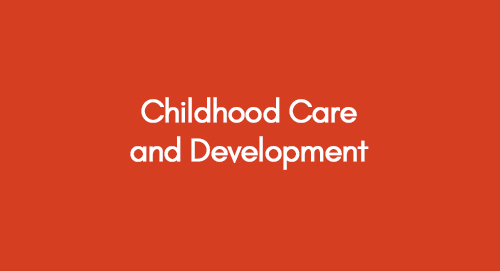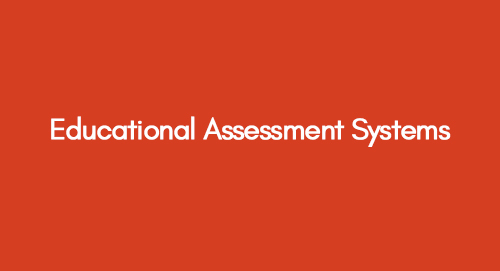In the tender embrace of childhood care and development, each nurturing moment becomes a brushstroke on the canvas of a flourishing future, painting the path to a resilient and well-rounded adulthood.
Childhood is a time of wonder and discovery when young minds are like sponges, absorbing information, values, and life skills that will shape their future. The care and development of children during these formative years are crucial for their overall well-being and future success.
Explore More About Childhood Care & Development
Childhood, that enchanting stage filled with innocence, curiosity, and boundless potential, is key to shaping the future. Childhood care and development are critical to children's growth into healthy, capable, and well-adjusted adults. In this blog, we'll explore the paramount importance of childhood care and development, focusing on the key elements and discussing how parents, caregivers, and communities can contribute to nurturing the future generation.
Introduction
Extensive research across various disciplines concerning child development underscores the pivotal role of relationships between children and their caregivers, encompassing parents, siblings, other family members, and teachers. This role is especially pronounced in cognitive development, self-regulation, socio-emotional adjustment, and language acquisition. The consensus among most researchers is that the relationship quality between infants and young children and their caregivers significantly influences their psychological adjustment and the development of their personalities. These relationships take form through the interactions between children and adults.
A child's capacity to respond to their environment and society is deeply rooted in psychological and neurophysiological adaptations shaped by their early interactions with caregivers (Fite et al., 2014). Hamre et al. (2014) have determined that when infants encounter disruptive or negative interactions with adults, they are compelled to self-regulate their negative emotional states to counterbalance the effects of inappropriate caregiver behaviour during these interactions. The cumulative impact of such interactive experiences results in a distinctive self-directed regulatory style that influences all subsequent interpersonal exchanges for these children. Moreover, an excessive need for self-regulation in children may hinder their capacity for learning and exploration. Consequently, a child's ability to interact with others, including adults and peers, is compromised. This underscores the critical importance of interactions between adults and children in shaping a child's personality and behaviour about parents, grandparents, siblings, teachers, peers, and society. It highlights the potential for these interactions to have a positive impact on child development.
Furthermore, Benson and Haith (2010) contend that fostering conversational skills in children is paramount for their positive development. Children proficient in conversation exhibit improved abilities to interact with both adults and peers, in contrast to those with less developed conversational skills. Notably, young preschoolers tend to display greater egocentrism when compared to their older counterparts. Consequently, during interactions with adults, their contributions to conversations may often lack relevance, clarity, or sufficient information compared to older children. Young children frequently assume that their conversational partners share the same information they possess. This leads to a significant distinction in how adults interact with young children compared to older ones, with conversation being a central factor. Older children are more adept at engaging in conversation through language, body gestures, and signs, enhancing their comprehension of adults. Conversely, due to deficiencies in conversational skills, young children may struggle to comprehend adults and express their reactions fully. Therefore, the quality of interactions between adults and young children, as well as the quality of conversations between adults and older children, is significantly influenced by the level of conversational proficiency.
Beyond the linguistic variations in the interactions of young and older children with adults, there are additional distinctions that fall under the categories of social and emotional differences. It is reasonable to assume that as children age, their capacity to engage with adults matures, resulting in a more significant impact on their personality and behaviour. This heightened impact stems from their enhanced ability to comprehend and interpret the behaviours and actions of adults, particularly in comparison to their younger years.
As indicated by Waite and Creswell (2015), theories of normative development underscore the need for parents to adapt their responses to support the emotional development of children and adolescents. This specific study is centred on the identification of anxiety disorders in children and adolescents that may be linked to their interactions with parents. The primary goal of this research is to gauge the extent to which young children differ from older children in their interactions with adults, encompassing linguistic, social, and emotional aspects. This study underscores the importance of recognizing that parents should tailor their interactions with their children as they age to influence their personality and behaviour positively. It underscores the necessity for parents and other adults to adapt their interactions to align with the social and emotional changes that children undergo during their developmental journey. Consequently, the central research question of this study is as follows:
How pronounced are the differences in linguistic, social, and emotional interactions between young and older children within their close family relationships?
Findings
Expanding on the initial research findings, Fite et al.'s (2014) exploration into the impact of disruptive or negative interactions on infants prompts the consideration of intervention strategies. Identifying effective methods to mitigate the potential negative outcomes of such experiences becomes a crucial next step in understanding how to foster healthier parent-child relationships. Additionally, the research implies that interventions promoting positive caregiver behaviour during interactions with infants could alter the trajectory of a child's self-regulatory style. Consequently, interventions and support programs may be pivotal in reshaping the early developmental experiences contributing to a child's regulatory abilities.
Benson and Haith's (2010) emphasis on fostering conversational skills in children prompts the need for practical applications. Delving into methodologies and interventions that enhance conversational proficiency in young children becomes a pertinent avenue for future exploration. This step involves investigating educational strategies, parental guidance approaches, and potential interventions within educational settings that effectively boost conversational skills in children, ensuring they develop these crucial abilities as they progress through different stages of childhood.
Waite and Creswell (2015) focus on normative development theories, and the need for parents to adapt their responses to support emotional development opens the door to examining specific strategies for adapting parental interactions. Research should explore practical approaches and interventions that align with children's evolving social and emotional needs as they age. This step involves investigating the effectiveness of parenting programs, workshops, or counselling services designed to guide parents in adapting their interactions to children's emotional changes during their developmental journey.
As the research delves into the differences in linguistic, social, and emotional interactions between young and older children, a critical step involves examining existing programs or developing new initiatives that cater to the unique needs of children at different developmental stages. This could include educational programs for parents, school-based interventions, or community outreach efforts to foster positive interactions between children and adults.
Conclusion
In conclusion, the wealth of research on child development emphasizes the vital role of relationships between children and their caregivers, shaping cognitive development, self-regulation, socio-emotional adjustment, and language acquisition. These early relationships profoundly influence psychological adjustment and personality development. Children's ability to adapt to their environment is rooted in their early interactions, where disruptive experiences may lead to the development of self-regulation skills. Conversational competence is key in child development, with age-related disparities in contributions during interactions with adults. As children mature, they better understand adult behaviours. The research highlights the importance of adjusting interactions with children as they age, ultimately underlining the dynamic nature of the parent-child relationship and its profound impact on a child's journey to well-rounded adulthood.
References
Benson, J.B. and Haith, M.M. eds., 2010. Language, memory, and cognition in infancy and early childhood. Academic Press.
Fite, P.J., Rubens, S.L., Preddy, T.M., Raine, A. and Pardini, D.A., 2014. Reactive/proactive aggression and the development of internalizing problems in males: The moderating effect of parent and peer relationships. Aggressive Behavior, 40(1), pp.69-78.
Hamre, B., Hatfield, B., Pianta, R. and Jamil, F., 2014. Evidence for general and domain‐specific elements of teacher-child interactions: Associations with preschool children's development. Child development, 85(3), pp.1257-1274.
NICHD Early Child Care Research Network, 2016. Child-care structure process and outcome: Direct and indirect effects of child-care quality on young children's development. Psychological Science.
Waite, P. and Creswell, C., 2015. Observing interactions between children and adolescents and their parents: the effects of anxiety disorder and age. Journal of Abnormal Child Psychology, 43(6), pp.1079-1091.
Get 3+ Free Dissertation Topics within 24 hours?






























